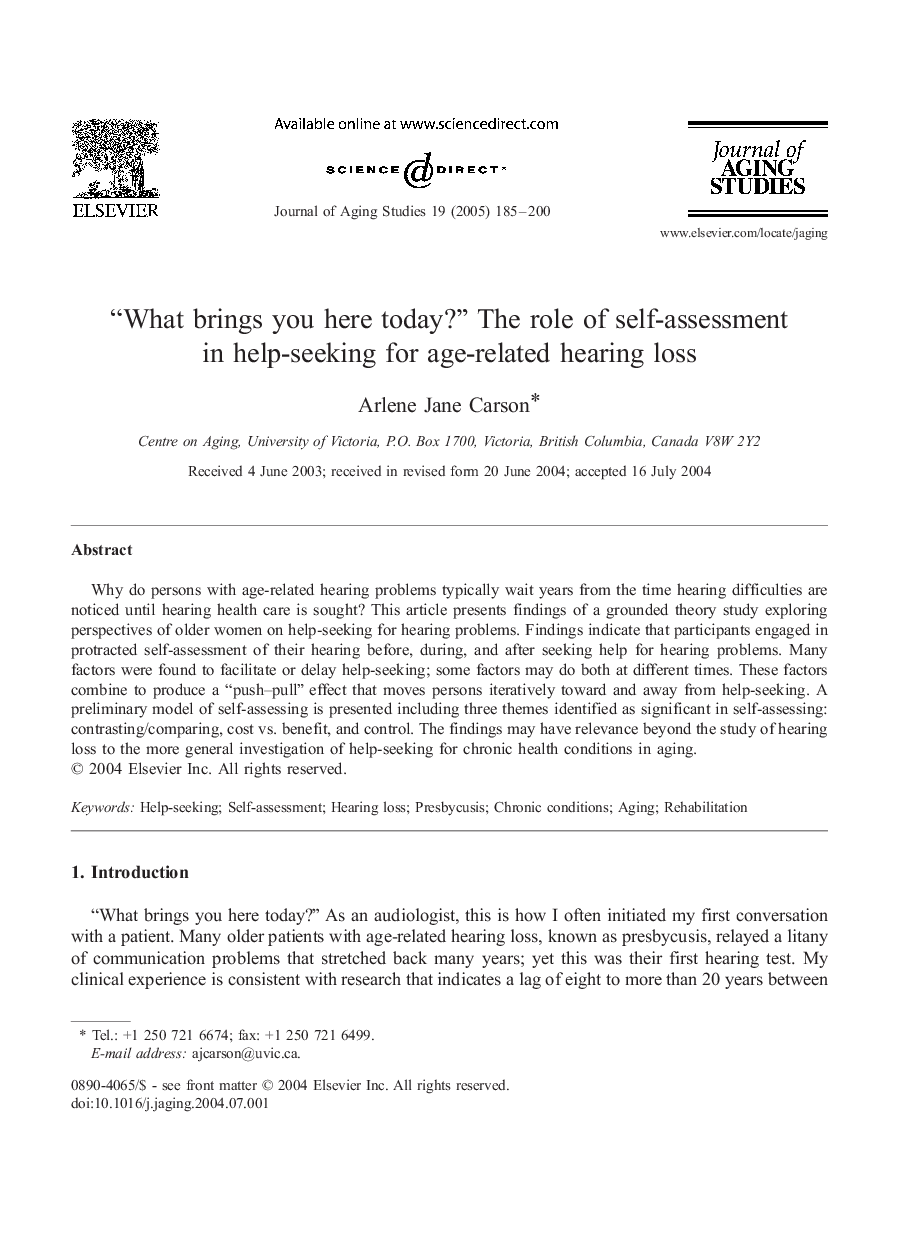| Article ID | Journal | Published Year | Pages | File Type |
|---|---|---|---|---|
| 10513274 | Journal of Aging Studies | 2005 | 16 Pages |
Abstract
Why do persons with age-related hearing problems typically wait years from the time hearing difficulties are noticed until hearing health care is sought? This article presents findings of a grounded theory study exploring perspectives of older women on help-seeking for hearing problems. Findings indicate that participants engaged in protracted self-assessment of their hearing before, during, and after seeking help for hearing problems. Many factors were found to facilitate or delay help-seeking; some factors may do both at different times. These factors combine to produce a “push-pull” effect that moves persons iteratively toward and away from help-seeking. A preliminary model of self-assessing is presented including three themes identified as significant in self-assessing: contrasting/comparing, cost vs. benefit, and control. The findings may have relevance beyond the study of hearing loss to the more general investigation of help-seeking for chronic health conditions in aging.
Related Topics
Health Sciences
Medicine and Dentistry
Geriatrics and Gerontology
Authors
Arlene Jane Carson,
